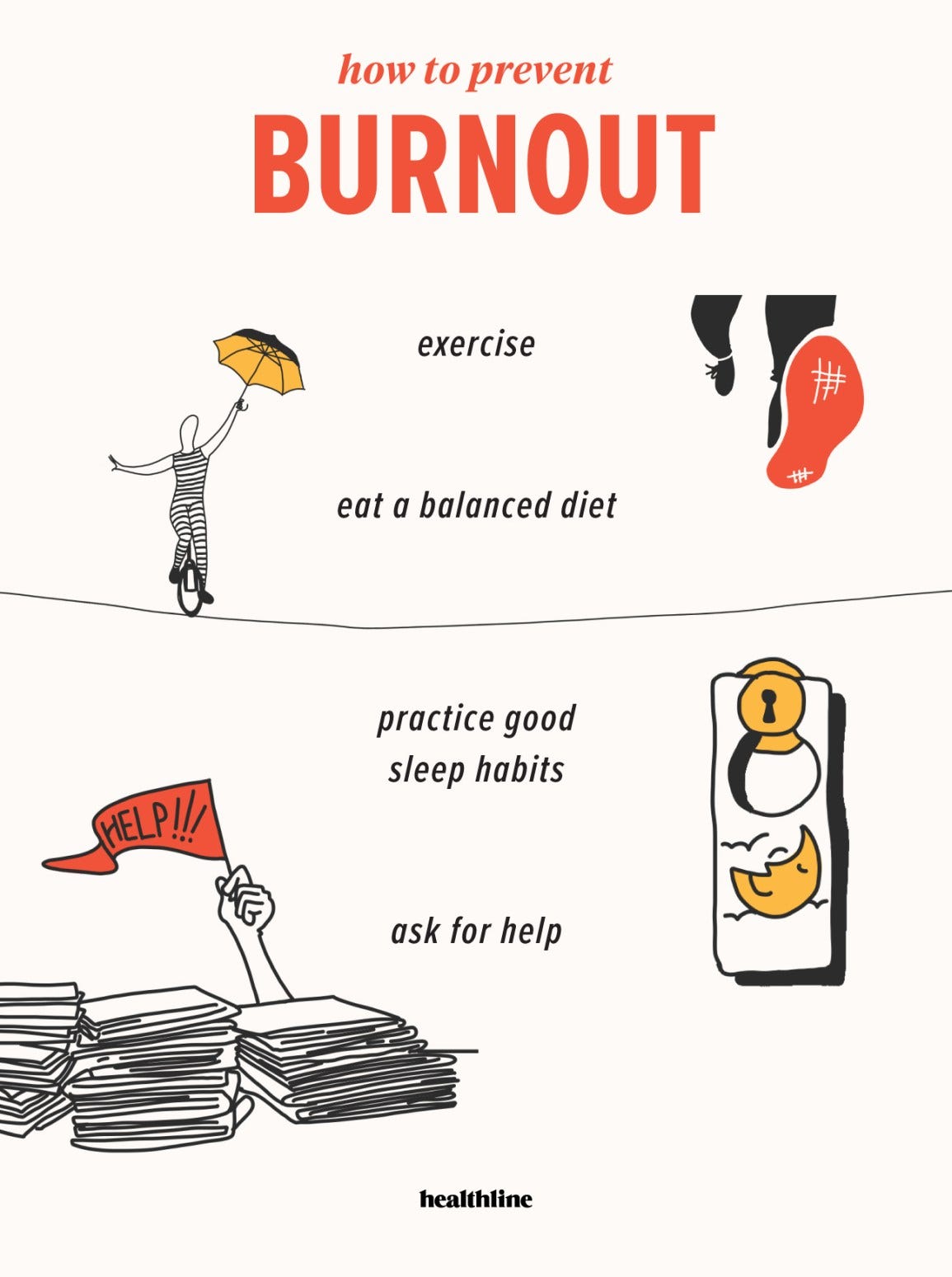As a high school student, burnout is fairly common to experience over time. Burnout is when someone faces high levels of stress regularly, which causes mental exhaustion. It can cause symptoms of anxiety and depression. Burnout is very important to identify and relieve because facing mental stress is extremely difficult. It is beneficial to know ways to identify and prevent symptoms of burnout when possible.
Common signs and symptoms of burnout include exhaustion, isolation, irritability, and illnesses. Burnout causes people to feel emotionally and physically drained and incredibly overwhelmed. Due to this, they tend to stop socializing with others, which leads to isolation. People with burnout also have a shorter temper, and everyday tasks feel more difficult and exhausting to do. Physical symptoms include headaches, loss of appetite, or stomachaches. It can also affect the immune system, so it is common to experience a fever, the flu, or insomnia.
These signs of burnout may take some time to notice. Burnout reveals itself in 12 stages, which are the following:
1. Excessive ambition: This stage usually occurs when people start a new job or a big task.
2. Pushing yourself: Newfound ambition causes people to work harder towards their goals.
3. Neglecting needs: People tend to sacrifice sleep, meals, and basic hygiene to work harder.
4. Conflict displacement: People usually start to blame other people for how they are feeling instead of acknowledging that they are pushing themselves too hard. 5. Work comes first: Work starts to become a person’s sole purpose, and it gets undivided attention. Work also replaces family, friends, and expenses.
6. Denial: This is the stage where irritability starts to occur. Instead of recognizing behavior, people start to blame others, and seeing them as incompetent or lazy.
7. Withdrawal: During this stage, people start to withdraw from friends and family, and they become more cynical.
8. Behavioral changes: People with burnout will usually become more aggressive and irritated, even to loved ones
9. Depersonalization: This is the stage where isolation starts and feelings of being detached from life
10. Anxiety or emptiness: Burnout leads to feeling empty or extremely anxious. To overcome these feelings, people tend to rely on substances, gambling, or overeating to feel something.
11. Depression: This stage involves spiraling into a state of depression
12. Mental or physical collapse: This stage represents peak physical and mental exhaustion. Mental help is usually needed at this time.
Burnout can be tackled before all of these stages are complete, so it is important to know how to prevent it.
Burnout can be prevented by including self-care in daily routine. Creating habits, such as exercising, eating well, and getting enough rest, are big factors in preventing burnout. Exercising not only gives a physical boost but also a mental reset. Eating a diet filled with omega-3 fatty acids can help with energy intake and is considered a natural antidepressant. Sleeping well every night is also a great reset after a long day. According to the National Sleep Foundation, it is best to avoid caffeine before bedtime and ban devices for the most optimal sleep schedule. Overall, burnout is difficult to overcome, but there are healthy ways to prevent it.
SOURCES:
https://www.healthline.com/health/tips-for-identifying-and-preventing-burnout#how-you-can-help
Written by Aanya Deshpande from MEDILOQUY




